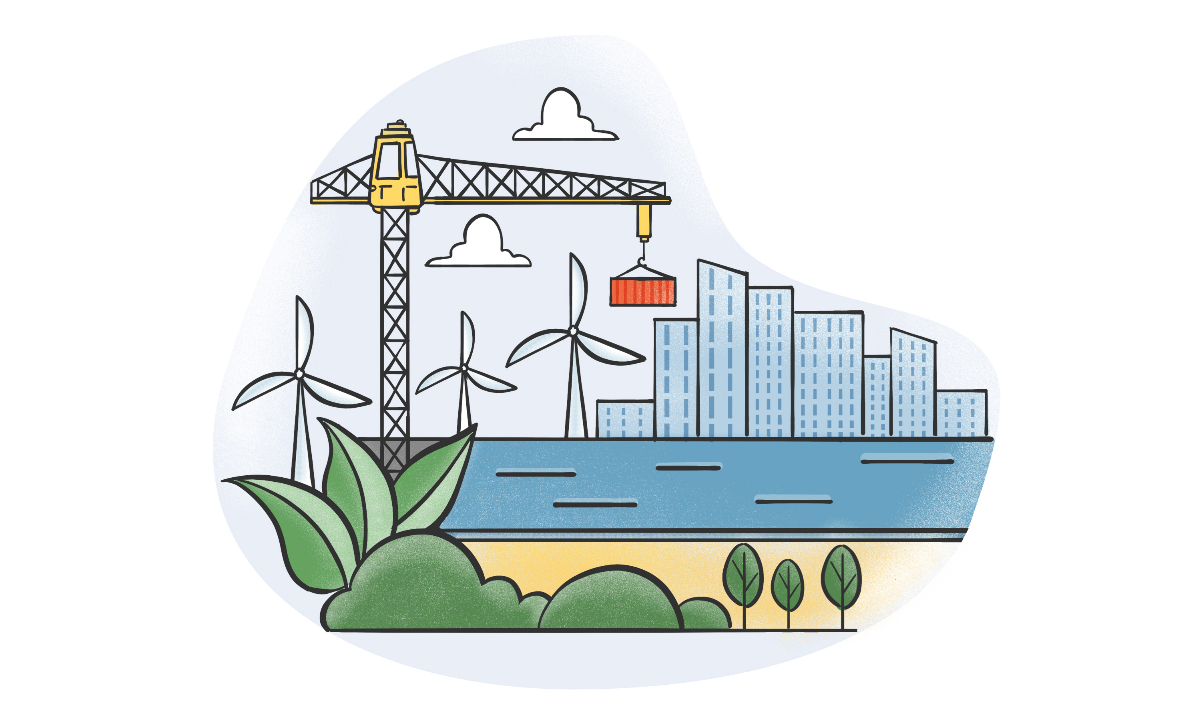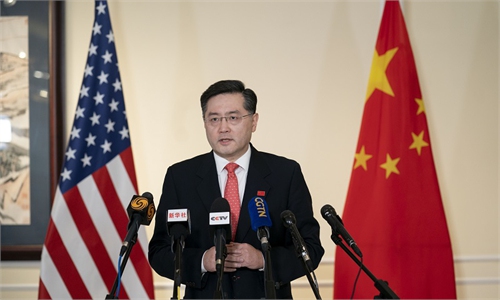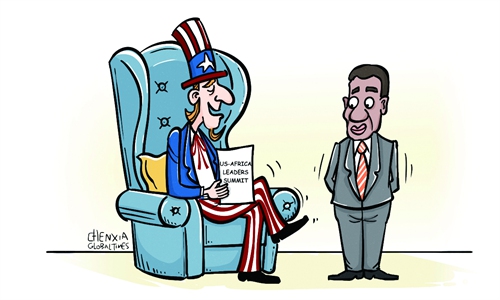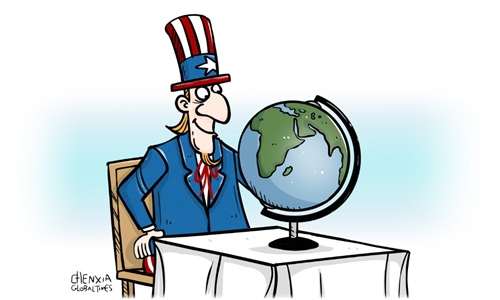
Illustration: Chen Xia/GT
China has become Africa's biggest economic partner. Bilateral trade between China and Africa amounted to US $254 billion in 2021, an increase of 35percentfrom 2020, with trade having increased twenty-fold in the last two decades. Our relations are expanding on all fronts: cultural, educational, environmental, technological, etc.
China overtook the US as Africa's top trading partner and largest source of investment (US $106.7 billion) between 2013-2019. Meanwhile, the US share of Africa's foreign trade fell (15.5 percent to 5.6 percent), while China's share jumped (4 percent to 25.6 percent) during this period.This has positioned China as a threat to US hegemony in Africa.
Keep in mind, as well, that China enters relations with Africa in a very specific historical and material context. Underdevelopment caused by colonialism left us with serious limits on how we pursue reconstruction and structural transformation. Following independence, African states' reliance on the export of raw materials - due to the power of multinational corporations and the lack of sufficient industrialisation in a range of African countries - put us in a position of dependency on foreign capital.
This condition of dependency was structured by the policies of the colonial rulers, who maintained economic activity in Africa based on the extraction and growth of raw materials which were then sold through colonial concessions to the countries of their rulers. This dependency was inherited by generations of post-colonial elites, who derived rents from it and did nothing to alter the structure. African states, therefore, rely upon external revenues from the export of raw materials, aid programmes from Western governments, and institutional aid.
Neocolonial economic subjugation through Western neoliberal economic policies of the 80s onwards saddled us with massive debts. Most African countries had interest bills much higher than their national revenues, our budgets were managed through austerity and driven by deep cuts in government employment as well as the education and healthcare sectors. Since a large part of the debt owed was denominated in foreign currencies, debt repayment has been near impossible without further borrowing, resulting in a cycle of indebtedness with no permanent relief in sight.
China, we are told, inveigles poorer countries into taking out loan after loan to build expensive infrastructure that we can't afford and that will yield few benefits, all with the end goal of Beijing eventually taking control of these assets from its struggling borrowers or leverage these debts for their own political gain. We are told that it aims to colonize our continent. But, when you look at the facts, the 'debt-trap' and 'colonial' narrative falls flat.
Let's take debt: a recent US study shows, only 8 percent (US $78 billion) of sub-Saharan Africa's total public debt of US $945 billion was owned by Chinese entities. Half of Africa's public debt is domestically issued, and the other half is owed to external actors (US $427 billion). China accounts for 18percentof said debt, while one-third is owed to bilateral official partners, one-third to international financial institutions and one-third to Eurobonds.
The classical understanding of colonialism is a form of foreign domination that allows for rampant exploitation of African labour and natural resources through the imposition of political and economic conditions antagonistic to the local populations' interests, whilst offering practically nothing in terms of economic progress for the local population and undermining territorial unity and political sovereignty. Does China have an interest in acquiring cheap natural resources? Yes. But has that come at the cost of offering zero economic development through the imposition of political orientations or economic restructuring for this development? I would also say no.
We have seen significant projects erected in infrastructure, agriculture, energy, health care, education etc that benefit the local population and platforms like the Forum on China-Africa Cooperation that has brought African leaders together to prioritize the continent's development collectively, a potential step forward for territorial unity. Unlike the neoliberal policies of the West that offered up investments with strict conditionalities and political impositions that favored the lender, Chinese economic investments don't come with those conditionalities and have more favorable repayment processes. Though there are challenges and limitations that require better conditions to be created by/for Africans to better negotiate and leverage our interests, the Belt and Road Initiative has been one of the processes that have changed the landscape materially, as we have seen China-led construction of key ports, railways, oil and gas pipelines, and power plants etc that are helping to empower African economies.
Though the opinions of Africans have shifted to become more favourable toward Chinese development model and its relations with Africa, our people are not entirely convinced that China's rise and engagement with the continent yields the most benefits. This arises from the fact that there is misinformation and mischaracterisation of Chinese engagement, a conflation of the various and heterogenous actors involved, challenges stemming from our own governments not pursuing the interests of their populations, and of course an expected suspicion toward foreign actors given the history of Western conquest of the continent. So, there is work to be done to raise the public discourse, bearing in mind that Chinese engagement is uneven, heterogenous and sometimes lacks nuanced communication.
The author is a researcher of the Tricontinental: Institute for Social Research who co-hosts The Crane: An Africa-China Podcast. opinion@globaltimes.com.cn



